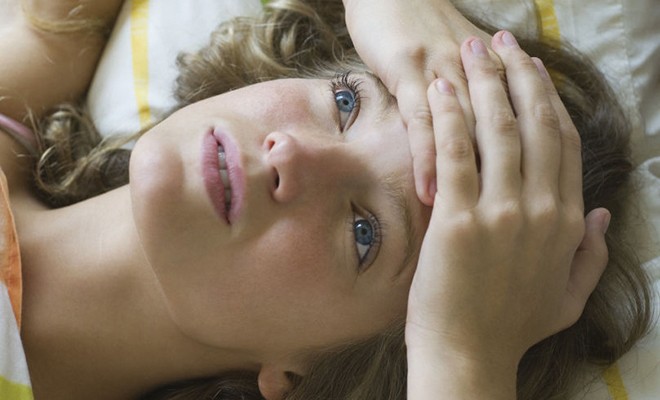Delayed Sleep Phase Disorder

By Cindy Nigro Ph.D.
Does the following scenario sound familiar?
Everyone else in your family has gone to bed several hours ago, however, you are still wide awake watching TV or doing whatever chores you can find around the house. Finally, because you know you should go to bed, you attempt to do so. Nonetheless, you lie awake for another hour or more, staring at the clock, and counting the few hours that are left for you to sleep. When morning rolls around, you get up when everyone else does, because, of course, you have to. You have to go to work, or school, and begin your traditional day. You feel quite groggy for a while, eventually you adjust, but ultimately you feel sluggish until bedtime comes around again. What doesn’t quite make sense is that no matter how tired you may feel that evening, once again, you can’t get to sleep and the pattern continues throughout the week!
Perhaps on weekends, you have a little more freedom. You still stay up late, but on Saturdays and Sundays, you sleep very late, often till noon or one o’clock. Others may describe you as lazy, or bemoan the fact that you’re wasting your day. You may even feel guilty about this, but you know you’re out of sync with everyone else, and don’t know why. I mean, in reality, you get less sleep than they do! If the above scenario sounds familiar, you may be suffering from what is called Delayed Sleep Phase Onset Disorder! You are what sleep professionals call an “Owl”. This sleep disorder is largely genetic, and affects at least 10% of the population, but there is good news. It can be treated!!

At the Insomnia Clinic at Delaware Sleep Disorders Centers, we have many patients who have presented with these same symptoms. Many have no idea why they are the way they are, and have never even considered the fact that they may be suffering from a legitimate disorder. Many of my patients find great relief in having a name put to their symptoms, and a reason to explain why they’re chronically late for work. It certainly is not because they are lazy, or irresponsible!
There is also a flip side to this, where individuals with Advanced Sleep Phase Disorder like to go to sleep early, but no matter what time they do, they always wake up early, usually earlier than everyone else. These people are called “Larks”. Both “Larks” and “Owls” fall into what are medically called Circadian Rhythm Sleep Disorders.
Melatonin is one of the most dominate hormones that regulates the part of the brain that determines sleep, and in the average person, it starts rising in the body at about eight or nine o’clock, and by six or seven o’clock the next morning, it has completely fallen. The rise of melatonin causes drowsiness, and the lack of it corresponds with wakefulness. Unfortunately, for those with a circadian rhythm disorder, their melatonin cycles occur either later or earlier. If left to their own devices though, they will have a perfectly normal night’s sleep, just at different times than most.
Melatonin is greatly affected by light, so by manipulating the amount and timing of light exposure, a person’s circadian rhythm can be nudged in one direction or the other. Aside from outdoor exposure, light devices are manufactured to simulate outdoor light, and are used to accomplish this. In addition, oral Melatonin tablets are sold over the counter, and with medical direction, can be taken to aide in initially resetting cycles.
For those of you who think you may have such a Circadian Rhythm Disorder, there is much reason to be optimistic! Circadian Rhythm Disorders are often easily adjusted, and maintained. The treatment does require determination, and patience, but the success rate is quite high.
To schedule an appointment for the Insomnia Clinic at Delaware Sleep Disorder Centers, please contact us at (877) 335.7533 option 1.
About the author:
Cynthia Nigro, Ph.D., Clinical Psychologist is now working at Delaware Sleep Disorder Centers after many years of being in private practice. She originally trained at the Center for Cognitive Therapy at the University of Pennsylvania, but after becoming fascinated by the connection between the mind and the body, she began extensive training in all modalities of Biofeedback. Presently she combines these therapies to optimize treatment for those with sleep disorders.
Delaware Sleep Disorder Centers, LLC, is staffed and equipped to evaluate and treat most sleep-related disorders. Diagnosis and treatment for many disorders may begin after just one night. When performing a sleep study, our technologists work closely with our medical director – (a physician who is board certified in Sleep Medicine, Pulmonary Medicine or Neurology) – to identify and confirm sleep disorders, measure their severity and recommend multiple treatment options.
Locations:
Sandhill Medical 118 Sandhill Drive Suite 201 Middletown, DE 19709
701 Foulk Rd. Suite 1G Wilmington, DE 19803
Connor Building @ Springside Plaza 300 Biddle Ave Suite 102 Newark, DE 19702
Medical Arts Bldg., Beebe Health Campus 18947 John J. Williams Highway Suite 213 Rehoboth Beach, DE 19971
20930 North DuPont Boulevard Suite 202 Georgetown, DE 19947





